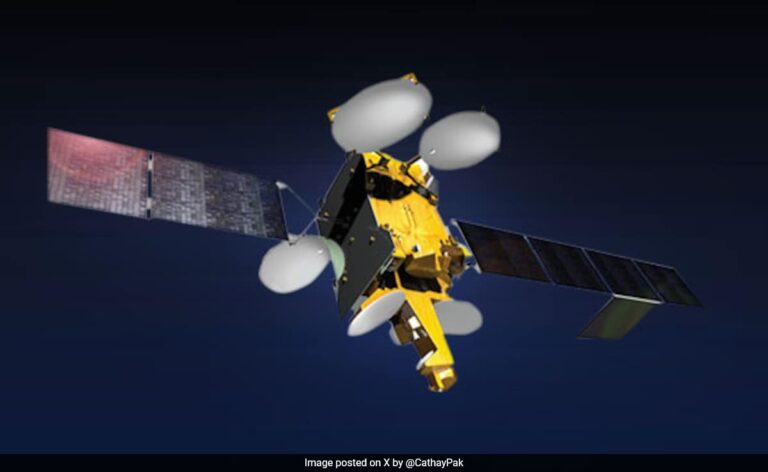
The satellite entered the planned orbit.
Islamabad/Beijing:
Pakistan on Thursday launched a multi-purpose communications satellite to boost speeds of internet connectivity with the help of all-weather ally China, making it Islamabad’s second satellite to be put into orbit within a month.
The multi-purpose communications satellite, also known as PAKSAT MM1, was launched from the Xichang Satellite Launch Centre in southwest China’s Sichuan province, according to China’s state news agency Xinhua.
The satellite entered orbit as planned.
State broadcaster Pakistan Television said in a statement that the satellite would “provide the best Internet facilities across Pakistan” and help improve broadcast television, mobile phone and broadband services. Dawn newspaper reported that the satellite is due to start operations in August.
Pakistani Prime Minister Shehbaz Sharif congratulated the satellite on its launch and said he hoped it would help provide the fastest internet facilities in the country, state-run Associated Press Pakistan reported.
“I am particularly excited about the potential impact PAKSAT MM1 will have on internet connectivity across Pakistan. Equipped with cutting-edge communications technology, the satellite promises to revolutionize our digital landscape and provide the fastest internet facilities across the country,” Sharif was quoted as saying.
Sharif said that PAKSAT MM1 will not only improve the lives of Pakistanis but also contribute to boosting economic activity, e-commerce and e-governance.
He reportedly said the launch from China’s Satellite Launch Center was “a testament to the strong cooperation and partnership between the two countries.”
“It is through collaborative efforts like this that we are able to move our nation forward and harness the power of technology for the benefit of our people,” he said.
The prime minister said the satellite’s launch into geostationary orbit, 36,000km above Earth, was an “amazing achievement” and a testament to the country’s scientific and technological capabilities.
Pakistan’s Space and Upper Atmospheric Research Commission (Suparco) said in a statement last week that the satellite’s launch was part of the country’s National Space Programme 2047.
“PAKSAT MM1 has been conceived as a joint venture between Suparco and China Aerospace Industries with China’s growing needs in the broad area of communications and connectivity in mind,” News International reported, citing a Suparco statement.
Planning Minister Ahsan Iqbal, who was present at the launch, said Pakistan would soon launch a satellite from its own launch pads.
“The day is not far when we will launch a satellite on our own rocket from Pakistan’s Space Launch Centre. Congratulations Pakistan,” he said.
On May 3, Pakistan’s small satellite iCube-Qamar was launched from Hainan Province as part of China’s Chang’e-6 lunar exploration mission.
Pakistan has sent at least six assets into space, including BADR-A, BADR-B, PAKSAT 1-R, PRSS-1, PakTes 1-A and iCube Qamar, the report added.
After launching on May 3, iCube-Qamar rose into space on May 8 and transmitted the first-ever images of the moon taken from lunar orbit.
(Except for the headline, this story has not been edited by NDTV staff and is published from a syndicated feed.)

